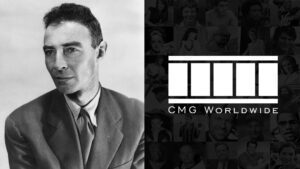Because of a $25 million gift, the venue, Verizon Hall, will be renamed to honor Anderson, a pioneering Black opera singer.
Marian Anderson, the renowned contralto and civil rights figure who broke racial barriers in the arts and helped pave the way for other Black artists, is being honored in her hometown, Philadelphia.
The Philadelphia Orchestra’s home will be renamed Marian Anderson Hall in recognition of a $25 million gift in her honor, the ensemble announced on Wednesday.
Anderson, who was born in Philadelphia in 1897 and died in 1993, became the first Black singer to perform a leading role at the Metropolitan Opera in 1955, at a time when Black artists in the United States faced rampant racial discrimination.
Matías Tarnopolsky, the president and chief executive of the Philadelphia Orchestra and the Kimmel Center, which oversees what is now known as Verizon Hall, said in an interview that Anderson was an “extraordinary artist who used her artistry fearlessly in the fight for civil rights.”
“We hope to inspire everyone who comes through our doors with this idea that the arts are a transformative force for good in the world,” he said. “We also want to show through this gesture that everyone is welcome.”
The naming rights for the hall expired in January. (Verizon contributed $14.5 million through its foundation to the construction of the Kimmel Center, which opened in 2001.)
A $25 million gift from Richard Worley, a financier and former chair of the Philadelphia Orchestra’s board, and Leslie Miller, his wife, made the renaming possible. The donation is one of the largest in the orchestra’s 124-year history.
The idea of honoring Anderson with the gift was the suggestion of the orchestra’s leadership.
“We jumped at the chance,” Worley said in an interview. “She was a great Philadelphian, born and raised here. We just thought it would be a wonderful tribute to her. Her name will be mentioned every time somebody says, ‘I’ll meet you at Marian Anderson Hall.’”
Miller said in an interview that Anderson had shown courage throughout her life. “She faced discrimination and pushback with grit and grace and triumphed,” she said.
Anderson, who performed several times with the Philadelphia Orchestra, was renowned for her velvety voice and her wide range of repertory, which included Bach and Handel oratorios, songs by Schumann and Rachmaninoff, Verdi arias and spirituals.
She drew widespread attention with a performance at the Lincoln Memorial in 1939 before a crowd of 75,000. The concert venue was arranged by Eleanor Roosevelt after the Daughters of the American Revolution denied Anderson the use of Constitution Hall at their national headquarters in Washington.
The donation will help the orchestra recover from its lingering pain from the pandemic. The ensemble ran a deficit last year for the first time in a decade, but there have been recent signs of hope: Attendance has improved this season, and fund-raising has picked up.
A formal rededication is planned in Philadelphia for June. The orchestra will present a concert and gala to celebrate Marian Anderson Hall, with a program featuring Yannick Nézet-Séguin, the orchestra’s music and artistic director; the actress and singer Audra McDonald; the soprano Angel Blue; and the jazz pianist Marcus Roberts.
The Philadelphia Orchestra has worked in recent years to broaden the audience for classical music, in part by featuring more Black, Latino and Asian composers and performers. Nézet-Séguin, who has been at the ensemble’s podium since 2012, said in a statement that renaming the hall for Anderson would help further the ensemble’s efforts to “create a more representative art form.”
“We will perform,” he said, “with the joy of her ongoing presence in Marian Anderson Hall.”




